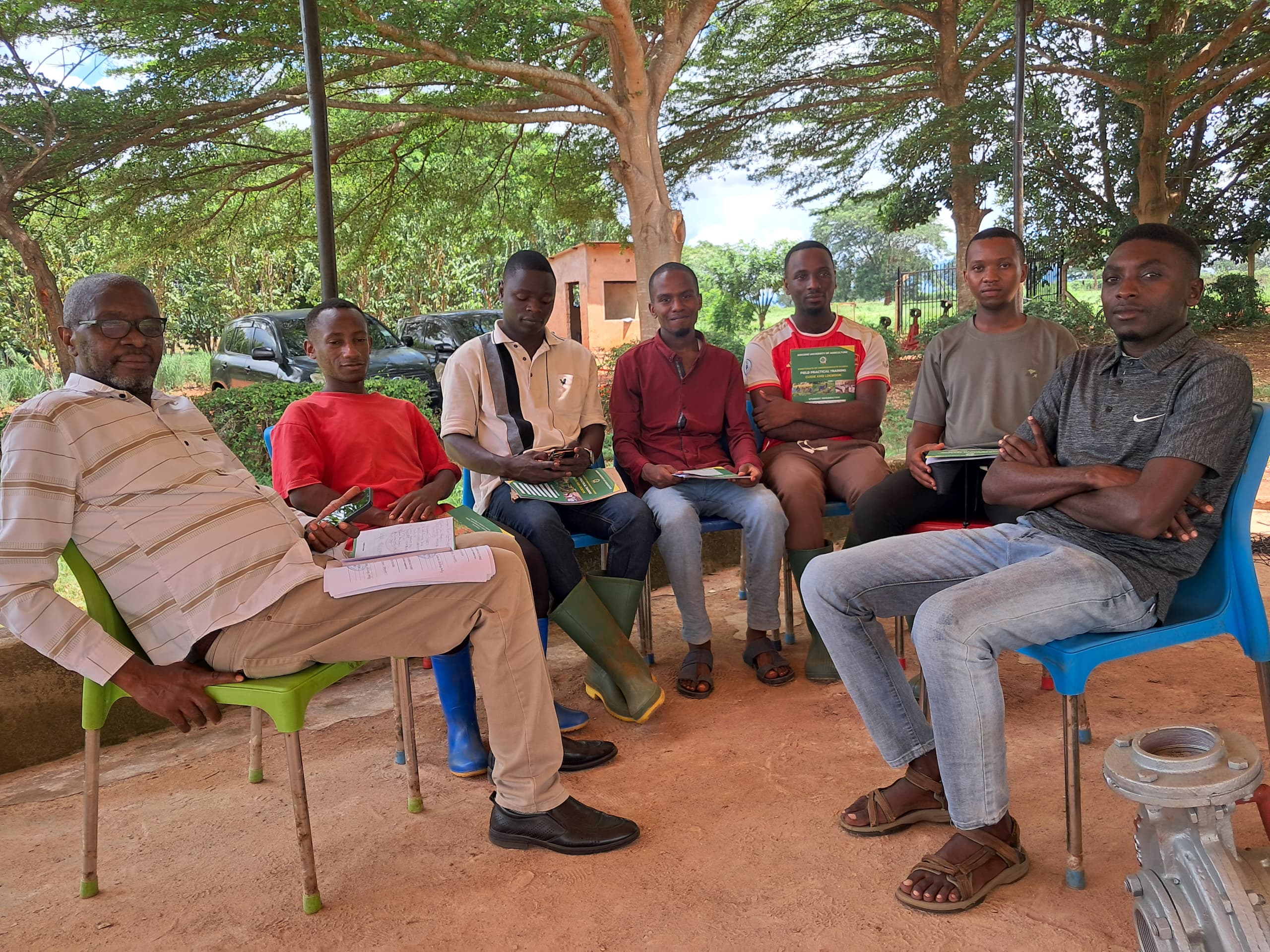The group photo Field Excursion for Principal of CSSH , MA Students, with Farmers
Field Excursion for MA Students Doing PM 601 & DS 609 (Project Monitoring and Evaluation) 7th February 2020
Aim of the visit: To carry out process evaluation of the RIPAT SUA project, as a practical following theoretical training on project monitoring and evaluation. It was also a practical orientation of the students to RIPAT approach, which was already covered theoretically in class.
Activities: Direct observation of activities implemented by farmers at home and demonstration plots, focus group discussion, questionnaire survey and key informant interview. It provided an avenue for interaction between students and farmers, village leaders, project officers and government extension officers.
Areas and projects visited: Changarawe, Tangeni and Mkuyuni villages in Mvomero District, and Magadu and Kauzeni wards in Morogoro Municipal. The students visited RIPAT SUA project, which is jointly implemented by Sokoine University of Agriculture (SUA) and RECODA (Research, Community and Organizational Development Associates), as one of the seven areas of collaboration stipulated in the SUA-RECODA MoU. The project is implemented in 7 villages in Mvomero District (Changarawe, Tangeni, Mnyanza, Kipera, Mlali, Mkuyuni and Peko misegese villages) and 5 wards in Morogoro Municipal (Magadu, Ruvuma, Luhungo, Mzinga and Kauzeni).
Participating degree programmes: Master of Arts in Project Management and Evaluation (21), and Master of Arts in Rural Development (3 students). Students were accompanied by course (PM 601 & DS 609) instructors (Dr. S.J. Kabote and Dr. E.T. Malisa), 2 other instructors (Dr. J.J. Ringo & Dr. G.D. Massawe), 1 CSSH website committee member and 2 project officers.
Way forward: The students, who were organized in 3 groups, are now preparing process evaluation reports which will be presented in class for validation before they produce final reports. Well-founded recommendations, based on the evaluations, will be made available to farmers in the project area and project implementation team.



